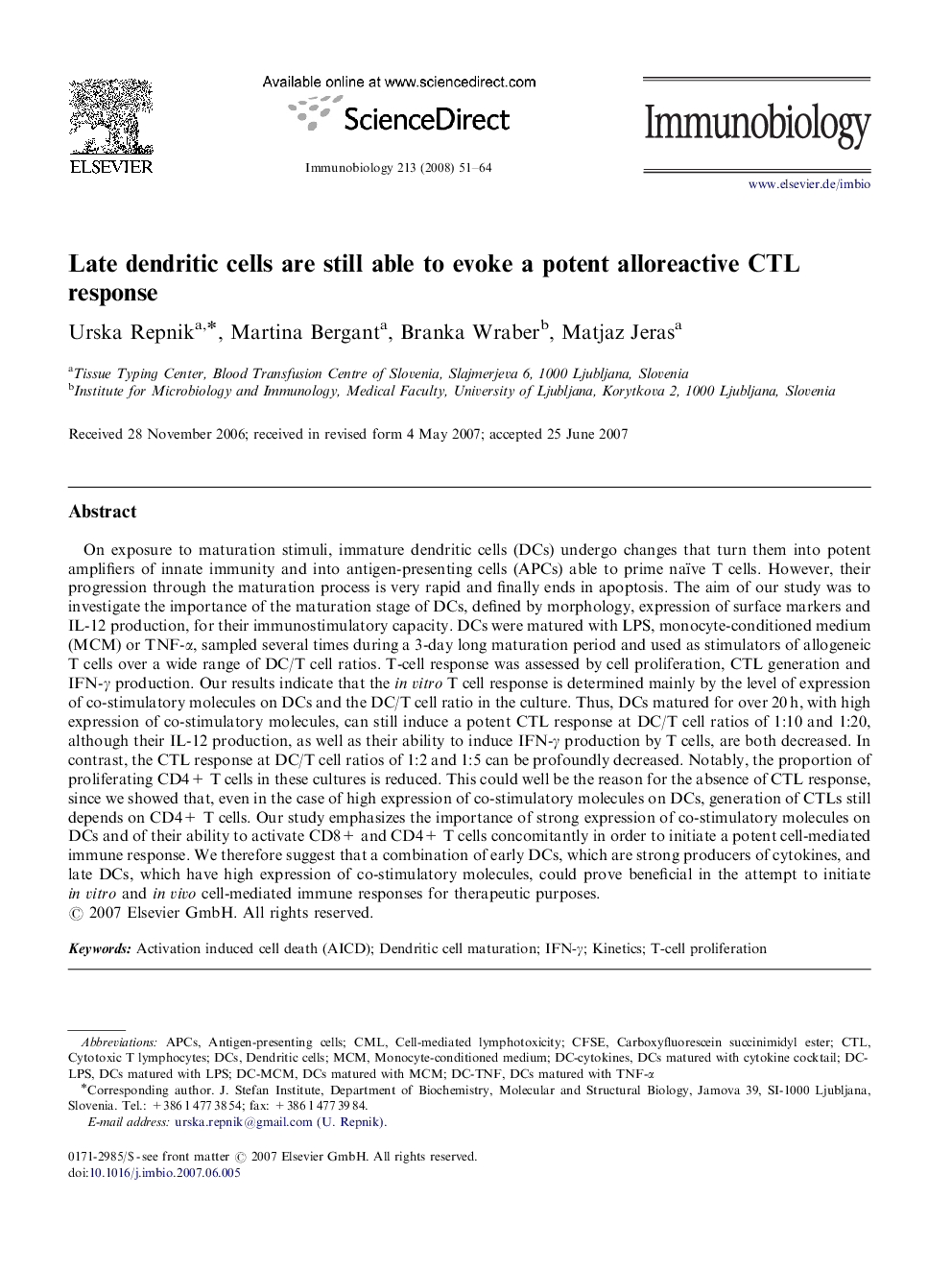| کد مقاله | کد نشریه | سال انتشار | مقاله انگلیسی | نسخه تمام متن |
|---|---|---|---|---|
| 2183890 | 1095599 | 2008 | 14 صفحه PDF | دانلود رایگان |

On exposure to maturation stimuli, immature dendritic cells (DCs) undergo changes that turn them into potent amplifiers of innate immunity and into antigen-presenting cells (APCs) able to prime naïve T cells. However, their progression through the maturation process is very rapid and finally ends in apoptosis. The aim of our study was to investigate the importance of the maturation stage of DCs, defined by morphology, expression of surface markers and IL-12 production, for their immunostimulatory capacity. DCs were matured with LPS, monocyte-conditioned medium (MCM) or TNF-α, sampled several times during a 3-day long maturation period and used as stimulators of allogeneic T cells over a wide range of DC/T cell ratios. T-cell response was assessed by cell proliferation, CTL generation and IFN-γ production. Our results indicate that the in vitro T cell response is determined mainly by the level of expression of co-stimulatory molecules on DCs and the DC/T cell ratio in the culture. Thus, DCs matured for over 20 h, with high expression of co-stimulatory molecules, can still induce a potent CTL response at DC/T cell ratios of 1:10 and 1:20, although their IL-12 production, as well as their ability to induce IFN-γ production by T cells, are both decreased. In contrast, the CTL response at DC/T cell ratios of 1:2 and 1:5 can be profoundly decreased. Notably, the proportion of proliferating CD4+ T cells in these cultures is reduced. This could well be the reason for the absence of CTL response, since we showed that, even in the case of high expression of co-stimulatory molecules on DCs, generation of CTLs still depends on CD4+ T cells. Our study emphasizes the importance of strong expression of co-stimulatory molecules on DCs and of their ability to activate CD8+ and CD4+ T cells concomitantly in order to initiate a potent cell-mediated immune response. We therefore suggest that a combination of early DCs, which are strong producers of cytokines, and late DCs, which have high expression of co-stimulatory molecules, could prove beneficial in the attempt to initiate in vitro and in vivo cell-mediated immune responses for therapeutic purposes.
Journal: Immunobiology - Volume 213, Issue 1, 18 February 2008, Pages 51–64